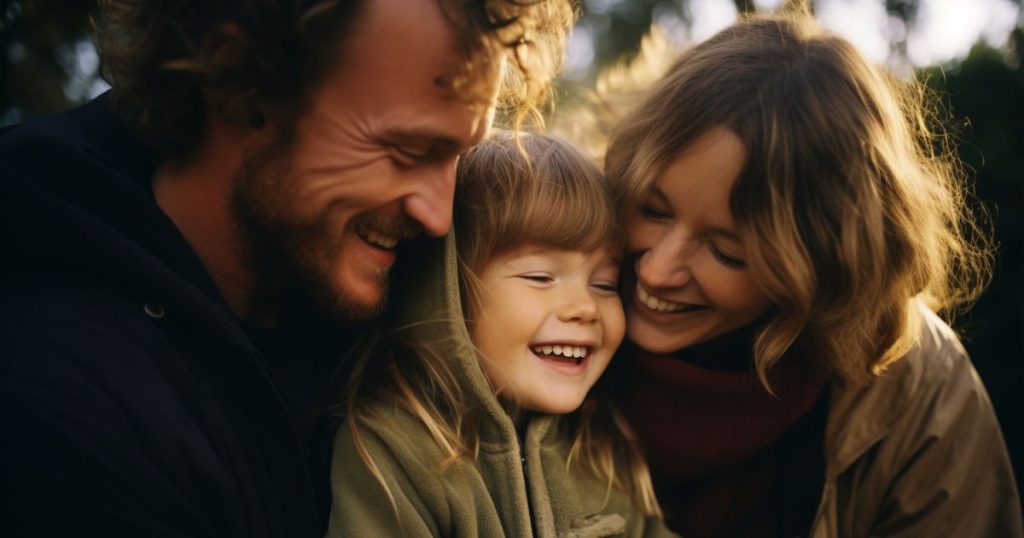The guilt almost killed me more than the abuse itself, and that’s exactly what my narcissistic family was counting on.
For eleven months after cutting off my family, I tortured myself with “what ifs” and “maybe I should try again” until I realized the guilt wasn’t love, it was the final chain keeping me trapped.
I’m talking about the kind of guilt that wakes you up at 3 AM, replaying conversations from years ago.
The guilt that makes you scroll through their social media, hoping to see some sign they’ve changed.
If you’ve gone no contact with narcissistic family members or a partner, you know this guilt intimately.
It’s the voice that says, “but they’re your family,” when you’re finally at peace.
It’s the shame that creeps in when you realize you’re actually relieved not to have them in your life.
Here’s what nobody tells you: the guilt is often harder to overcome than the actual abuse.
The abuse was obviously wrong. But the guilt? The guilt feels noble.
It feels like proof that you’re a good person, that you have a heart.
I spent almost a year drowning in this guilt after my older sister, my mother, and my aunt betrayed me while I was eight months pregnant.
While they were stealing my savings and turning my other family members against me, I was worried about being too harsh.
That’s the power of guilt programming in narcissistic families.
Even when someone tries to destroy your life, you still question if you’re doing the right thing by protecting yourself.
But here’s what I learned: the guilt isn’t your conscience talking. It’s their voice, still living rent-free in your head.
And until you evict that voice, you’ll never truly be free.
Table of Contents
Guilt Is My Toxic Family’s Last Form of Control

The betrayal happened when I was eight months pregnant.
My older toxic sister supported my aunt for stealing my savings that my husband and I’d worked years to accumulate for our growing family.
My narcissistic mother was so happy that that happened, as she finally got to see the daughter she hated fall.
But you know what hurt more than the theft itself?
The guilt that followed.
Even after they’d proven they’d rather see me homeless and broke than successful, I still felt guilty for being angry.
I felt guilty for not “working it out.
I felt guilty for protecting my unborn child from people who had just demonstrated they’d destroy me without hesitation.
That’s when it hit me like a freight train.
The guilt wasn’t mine. It was theirs.
And they’d planted it in me so perfectly that even when they were actively trying to ruin my life, I was still worried about hurting their feelings.
Here’s what I wish someone had told me eleven months earlier: guilt is a narcissist’s insurance policy.
Think about it. When was the last time your narcissistic family member felt guilty about hurting you?
Can’t remember? That’s because they don’t.
Guilt requires empathy, and empathy requires seeing you as a separate person with valid feelings.
But they trained you so well to carry guilt that even after you’ve gone no contact, you’re still doing their emotional labor.
I spent almost a year torturing myself with thoughts like:
- “What if they really do miss me?”
- “Maybe I should have tried harder”
- “Am I being too harsh?”
- “What if I’m wrong about everything?”
Every single one of those thoughts was their voice, not mine.
The real truth? They trained you to feel guilty because guilt keeps you available.
Guilt keeps you thinking about them. Guilt keeps you small and manageable, even from a distance.
But here’s what they never expected: once you recognize guilt as their final form of manipulation, it loses its power.
You’re not abandoning family when you cut contact with people who actively harm you.
You’re refusing to be their emotional hostage. And that refusal? That’s not something to feel guilty about.
That’s something to feel proud of.
Because for the first time in your life, you’re managing your own emotions instead of theirs.
And that terrifies them more than anything else ever could.
Your Nervous System Can’t Heal While Guilt Is Active

For eleven months after cutting contact, I couldn’t sleep through the night.
Not because I missed them. Because my body was at war with itself.
Every time I’d start to feel peaceful about my decision, the guilt would kick in like an alarm system.
My heart would race. My chest would tighten.
I’d lie awake at 3 AM with this gnawing feeling in my stomach, wondering if I’d made a terrible mistake while taking care of my newborn.
Here’s what no one tells you about guilt after going no contact: it’s not just an emotion.
It’s a full-body stress response that keeps you trapped in the same fight-or-flight state that the abuse created in the first place.
When you feel guilty about protecting yourself, your brain interprets that as: “I’ve done something dangerous. I need to fix this. I’m not safe.”
So even though you’ve physically removed yourself from the toxic situation, your nervous system is still firing off danger signals 24/7.
You can’t relax. You can’t heal. You can’t move forward.
Because healing requires safety. And guilt is the opposite of safety.
I remember one specific night, about six months after the betrayal. I was lying in bed next to my husband, in our beautiful, peaceful home, with our healthy baby sleeping nearby.
By all measures, I was safer and happier than I’d ever been.
But my heart was pounding because I’d caught myself feeling grateful for my life without including my family in that gratitude.
The guilt was literally punishing me for being happy.
Guilt is just hypervigilance in disguise.
It’s your nervous system trying to keep you “safe” by maintaining the old patterns, even when those patterns are what was hurting you.
Every time you feel guilty about choosing yourself, you’re telling your nervous system: “We made a mistake. We’re in danger. We need to go back.”
You can’t heal trauma while actively feeling guilty about healing from it.
The breakthrough came when I started talking to my nervous system like it was a scared child: “We’re safe now.
We don’t have to manage their emotions anymore. It’s okay to relax. It’s okay to be happy.”
The moment you stop feeling guilty about protecting yourself is the moment your body finally gets permission to heal.
And that’s when the real recovery begins.
How I Broke The Guilt Cycle (Step-by-Step Process)

The guilt was eating me alive.
Eleven months of waking up every day feeling like I’d committed some unforgivable sin by protecting my family from people who wanted to destroy us.
I knew something had to change when I caught myself apologizing out loud, to an empty room, for being happy about my peaceful life.
That’s when I realized: if I didn’t actively break this guilt cycle, it would break me first.
So I developed a system. Not some fluffy self-help nonsense, but a practical, step-by-step process that actually worked.
It took me almost a year to figure this out, but once I did, everything changed.
I ended up documenting the entire process because I wished someone had handed me this roadmap when I was drowning in guilt. Here’s exactly what worked when nothing else did.”
Step 1: Name the Programming
Every time guilt hit, I’d literally say out loud: “That’s my grandmother’s voice, not mine.”
I’d catch myself thinking, “Maybe I should reach out” and immediately follow it with: “That’s the programming talking.”
The guilt wasn’t my authentic feeling. It was their installed software running in the background of my mind.
Naming it took away its power to operate in secret.
Step 2: The Reality Check Exercise
I wrote two lists. Side by side.
What they actually gave me:
- Criticism disguised as “concern”
- Conditional love with strings attached
- Years of walking on eggshells
- The constant feeling of never being good enough
- Financial betrayal when I needed them most
What they took from me:
- My confidence
- My peace of mind
- My savings
- My sense of safety
- Years of my life trying to earn love that was never available
Reality check complete.
Step 3: Future Self-Visualization
I’d close my eyes and imagine myself at 70.
Would that version of me be proud that I stayed in toxic relationships out of guilt? Or would she be grateful that I chose peace early enough to actually enjoy my life?
The answer was always the same.
Future me wasn’t worried about what my abusers thought.
I was thankful that I’d been brave enough to choose my well-being over their comfort.
Step 4: Evidence Gathering (My Favorite Process)
I started keeping a “peace journal.”
Every day, I’d write down one thing that felt better about my life since going no contact:
- “Slept through the night without anxiety.”
- “Laughed genuinely for the first time in months.”
- “Didn’t check my phone obsessively waiting for drama.”
- “Enjoyed dinner without my stomach in knots.”
The evidence was overwhelming. My life was objectively better without them in it.
Step 5: Permission Statements
I created daily affirmations that rewired the guilt:
- “I’m allowed to choose peace over chaos.”
- “Protecting my child from toxicity makes me a good mother.”
- “Their comfort is not more important than my safety.”
- “I don’t owe anyone access to my life just because we share DNA.”
I’d repeat these every morning and every time the guilt tried to creep back in.
The breakthrough came about three months into this process.
I was playing with my son in our backyard, genuinely happy for the first time in over a year, when that familiar guilt wave started to rise.
But instead of drowning in it, I applied my system:
- That’s the programming.
- Reality check: they chose money over my well-being.
- Future me is proud of this choice.
- Evidence: my son is growing up in peace instead of chaos.
- Permission: I’m allowed to be happy.
The guilt wave crashed and disappeared.
That moment changed everything. Not just the guilt, but my entire relationship with myself.
I spent the next few months refining this system, testing it every time old patterns tried to creep back in.
Eventually, I had a complete roadmap for rebuilding confidence and creating a life I actually loved – something I’d never experienced before.
For the first time in almost a year, I felt completely free.
Not because I stopped loving them. But because I finally loved myself more than I feared their disapproval.
This system didn’t just break the guilt cycle. It broke the last chain connecting me to my family dysfunction.
And that’s when I truly started living instead of just surviving.
What Happens When You Finally Let Go of The Guilt?

It happened on a Tuesday morning in my kitchen. I know, right? Weird.
I was making coffee, watching my son play, sunlight streaming through our windows.
And for the first time in almost a year, I felt… nothing.
Not sadness. Not anger. Not guilt. Just peace.
The weight I’d been carrying, that heavy, suffocating guilt that made every happy moment feel stolen, was simply gone.
That’s when I knew: I was finally free.
When the guilt was lingering in my life, every good moment was tainted with guilt.
Every success felt hollow because I wasn’t sharing it with “family.”
But now, I could breathe fully for the first time in decades.
I could celebrate my wins without apologizing.
I could love my chosen family without reserving space for people who’d proven they didn’t deserve it.
Here’s what I discovered on the other side:
My son gets to grow up in a home where love doesn’t come with conditions.
My marriage thrives because I’m not constantly drained by family drama.
My business flourishes because I trust my instincts without their voices in my head.
Meanwhile, my older sister, who helped steal from me while I was pregnant, isn’t living some amazing life I’m missing out on.
She’s married to someone she’s embarrassed by, living in a mediocre neighborhood, trying to keep up appearances.
I’m building something beautiful with people who actually want me to succeed.
The guilt had me convinced that cutting contact would leave me empty and lonely.
The truth? It left me full. Full of peace, joy, and space for real love to grow.
You can’t build a new life while mourning the old one.
The moment I stopped feeling guilty about choosing myself was the moment everything else became possible.
Because your peace was always more important than their comfort.
And the life waiting for you on the other side of guilt? It’s more beautiful than anything they ever offered you.
Related Reads:
- 7 Perspective Shifts That Changed Everything For Me After Healing From Narcissistic Abuse
- How I Rebuilt My Self-Worth After Narcissistic Abuse (One Bold, Unapologetic Little Choice at a Time)
- 5 Things I Say To My Narcissistic Family When They Try To Make Me Feel Bad For Setting Boundaries
- 3 Non-Negotiable Reasons You Must Cut Off Narcissistic People (Yes, Even Family)
- How I Rebuilt My Confidence After 20 Years of Narcissistic Abuse (Inside Look at What I Did)


